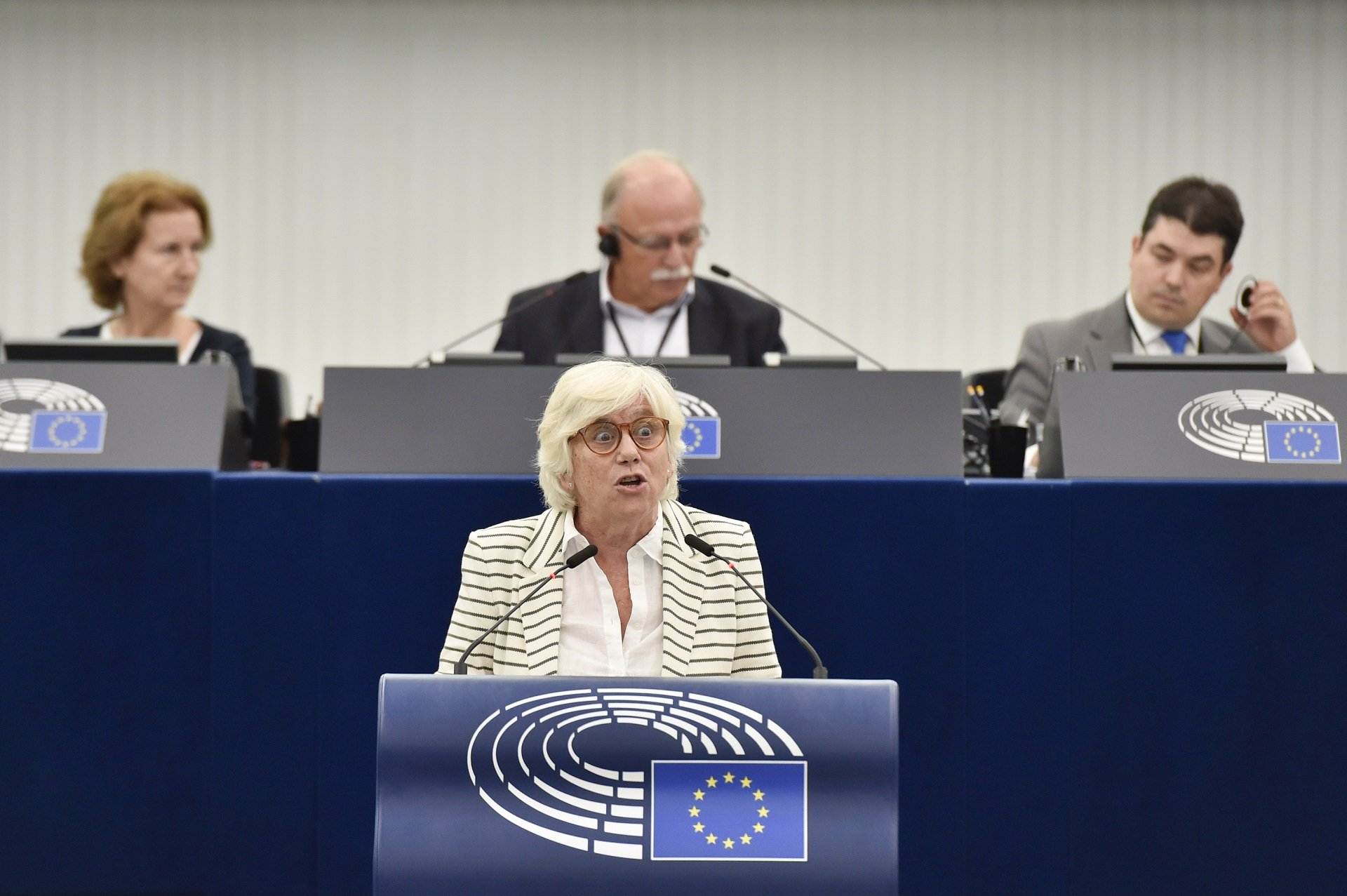The pro-independence Catalan MEP, Clara Ponsatí, has presented a forceful argument to her fellow parliamentarians on the rights of Catalan to join the 24 currently-permitted languages and be granted official status in the European Union. Just days ahead of the meeting when the Member States are to vote on admitting Catalan, Basque and Galician to full EU status, she raised the matter during the State of the Union debate in Strasbourg, criticizing that the objections given to the officialization of these languages in the European institutions have been on economic grounds, such as those pointed out by Sweden in a report. "The reason that has kept the Catalan language banned is not money, as is known by every MEP who will be taking a chauffeur to go to a restaurant today", said Ponsatí this Thursday. The real motive for banning Catalan and other minoritized languages, said the former education minister, "is to deny our voice and our rights". Then, switching to her own language, she hammered home that "Catalans have the right to be represented in Catalan, and the duty of this parliament is to guarantee this right".
Ponsatí began pointing out a contradiction: between the Parliament's duty to represent all of the people of Europe and the fact there are many millions of European citizens whose languages are banned in the chamber. And then she noted that, albeit because of "contingent political necessities" in Spain, the option of making Catalan official in the EU has arisen. However, the MEP denounced that "immediately" there have been critical voices that consider that such a move could be "too expensive". And on this question she offered a reflection to her fellow MEPs: "Apparently, the taxpayers of Barcelona have to pay for the translation of my speech into French or Swedish, but the taxpayers of Paris or Stockholm don't have to do the same for Catalan. Do taxpayers have different rights depending on where they are from?"
Next Tuesday, September 19th, the General Affairs meeting of the Council of the European Union will debate the Spanish government's proposal to make Catalan, Galician and Basque official, for which unanimity is required among the 27 member states of the Union. At the same time, the European chamber has opened a request to allow the use of these languages in the plenary - an option that would be automatic if the initiative of September 19th goes ahead, but which could also be done with a simple majority vote in the EU chamber's Bureau.
Sweden's doubts about Catalan
The Swedish government currently has "reservations" about the granting of official EU language status to Catalan, Basque and Galician. This is stated by a document from the Office for the Coordination of EU Affairs, which sets out the country's position on the points to be discussed at the meeting next week. In the text, dated this Monday, the Swedish government notes that an "assessment of the consequences" of the measure must be carried out. Specifically, Stockholm has doubts about "the impact of the proposal on the effectiveness of the EU's work" as well as "the budgetary and practical effects".

